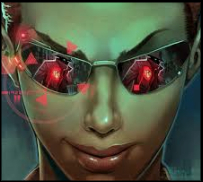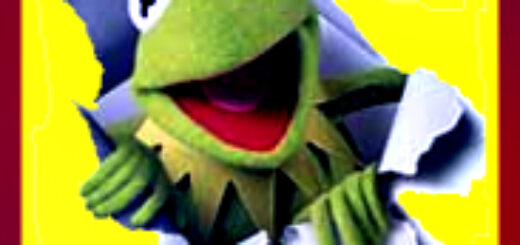Jen Krueger: Fan to Fan, or Performing Doctor Who for Fellow Whovians
 Thinking about my favorite of the Doctor’s adventures, one that immediately comes to mind is his journey to Tudor England. Crossing paths with an aging Henry VIII on the verge of a final marriage, the Doctor stumbles on a Dalek plot to kill him while companion Brianna is killed by the King’s Guard. Resurrected by the Pope, Brianna saves the day by brokering peace between Henry and the Catholic church, and using her love for the Doctor to melt the Dalek in disguise. If you’re a fan of Doctor Who but don’t remember this episode, that’s probably because this adventure was presented for the first and only time in Los Angeles for a single night in September of 2013. Also, it technically wasn’t an episode of Doctor Who. It was an installment of Doctor Who Live!, an improvised version of Doctor Who that I perform in twice a month.
Thinking about my favorite of the Doctor’s adventures, one that immediately comes to mind is his journey to Tudor England. Crossing paths with an aging Henry VIII on the verge of a final marriage, the Doctor stumbles on a Dalek plot to kill him while companion Brianna is killed by the King’s Guard. Resurrected by the Pope, Brianna saves the day by brokering peace between Henry and the Catholic church, and using her love for the Doctor to melt the Dalek in disguise. If you’re a fan of Doctor Who but don’t remember this episode, that’s probably because this adventure was presented for the first and only time in Los Angeles for a single night in September of 2013. Also, it technically wasn’t an episode of Doctor Who. It was an installment of Doctor Who Live!, an improvised version of Doctor Who that I perform in twice a month.
As a Whovian for several years and an improviser for even longer, I was really excited when I was invited to join a group that would allow me to bring together two of my favorite things. I thought doing a show that would let me transform the things I wish the Doctor would do from idle thoughts into reality (albeit reality limited to 45 minute non-canon installments) would be a blast. After all, every fan has opinions on how the object of their fandom could be improved or expanded upon, but how often does any fan get the chance to actually play out those opinions by dictating what their favorite fictional characters will see, say, or do? Almost never, at best. I was pumped. So, so pumped.
And then, the pressure hit me. Because the more I thought about how cool it was going to be to make up and play out an episode of Doctor Who, the more I realized how difficult that would really be. Walking on stage with nothing more than the TV show’s conventions as a bare foundation on which to build comedy with twelve other people means there’s as much of a chance for failure as there is for success. I’m strictly a 2005 and on fan, so there are decades worth of episodes that I know nothing about yet, our audience may expect to see references from. Thankfully, a lot of the cast knows classic Who, so I can count on them to catch me up quickly in the wings if the audience’s suggested title for our episode contains something I don’t know much about, like the Sea Devils (and man, does our audience love to bring up the Sea Devils).
But my worries about representing Doctor Who faithfully went beyond just nailing the right references. Knowing how strong my feelings about the TV show are, it seemed fair to me that our Doctor Who Live! audience could hold us to the same standard they have for the real thing. We promise an improvised episode of the TV show and the TV show is phenomenal, so we’ve set an incredibly high bar for ourselves and have to figure out how to clear it. Before my first performance with the group, I was a bundle of nerves thinking about falling short of that bar. I wanted the show to be perfect because I didn’t want to disappoint myself or the audience. And with all this worrying going on, I was overlooking a very crucial fact: in that theater, we’re all fans.
After all, while it takes an awful lot of fandom to put on an improvised episode of a TV show, it takes even more to watch an improvised episode of a TV show. And Doctor Who Live! isn’t just lucky enough that there are big enough fans of Doctor Who to make doing our own version of it viable, but luckier still to have fans of our own. We have wonderful audience members who come regularly, encourage our silliest bits, and even let us be part of their birthdays by celebrating at our show. If we didn’t all love Doctor Who, none of that would be possible. I have to admit that despite regularly performing in front of audiences in various forms of improv for the last five years, it always feels weird to me to be recognized for a show I’ve done since improv is, by nature, so fleeting. But I’m starting to enjoy getting recognized for Doctor Who Live!, because being remembered as part of that group is, by nature, being recognized as a fan of Doctor Who, and usually leads to conversations about the real show. Now what kind of Whovian would I be if I didn’t like that?












 Like most people, my Twitter username isn’t my actual name. I have no compunction about identifying myself by my real name on Twitter, and would’ve taken @jenkrueger if it had been available when I signed up. But even as far back as my first tweet in August of 2008, scoring my real name as a handle wasn’t possible.
Like most people, my Twitter username isn’t my actual name. I have no compunction about identifying myself by my real name on Twitter, and would’ve taken @jenkrueger if it had been available when I signed up. But even as far back as my first tweet in August of 2008, scoring my real name as a handle wasn’t possible.














